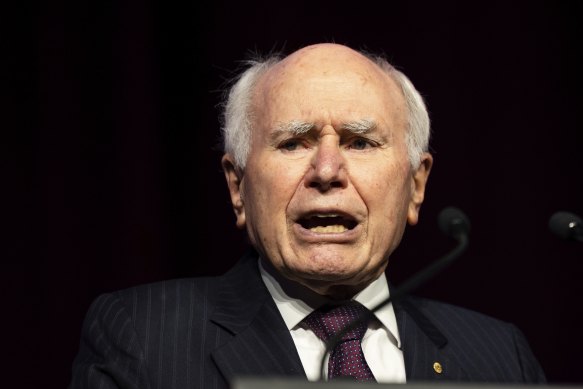The AFL and NRL have launched a last-ditch attempt to protect their business models from a far-reaching federal plan to ban gambling advertising across all digital platforms, fearing the changes will slash revenue from their websites and apps and hurt community sport.
Australian rugby league chief Peter V’landys and AFL boss Andrew Dillon are using their sway with political leaders to block a blanket digital advertising ban before it is decided by federal cabinet, as the $23 billion wagering industry prepares for a surge around the football finals.
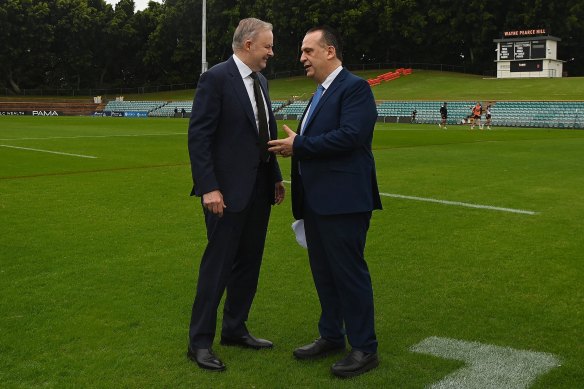
Anthony Albanese with Peter V’landys at Leichhardt Oval in June.Credit: Kate Geraghty
In his first public remarks on the plan, V’landys called “extreme ideological” the campaign for a comprehensive ad ban – the change sought by Greens, crossbench and some Labor MPs, but not endorsed by Prime Minister Anthony Albanese.
Senior figures at the AFL have been in talks with federal officials for weeks to put the case that drastic cuts to betting revenue will compromise their ability to fund local sport, according to AFL and other sources who requested anonymity because the talks are confidential and some executives have signed non-disclosure agreements with the government.
V’landys said he was pleased to see Albanese looking at the facts about gambling rather than listening to “loud voices who are expounding an ideology” about the issue.
“Unfortunately, these people want to run everybody’s lives and force their will upon the majority of people who will never have a gambling problem and who enjoy a flutter – especially considering that less than 1 per cent of Australians will ever have an issue with problem gambling,” said V’landys, who is the chief executive of NSW Racing as well as the chair of the Australian Rugby League Commission, which administers the NRL.
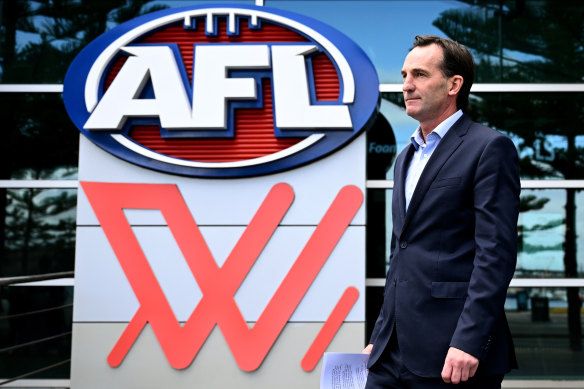
AFL CEO Andrew Dillon.Credit: AAP
V’landys argued that independent statistics showed that out of 100 people who sought help from a problem gambling hotline, 70 were due to poker machines, 15 due to lotteries, eight due to racing, four due to sport and three due to casinos.
The sports boss, who has a relationship with Albanese and joined him at a state dinner at the White House last year, said the prime minister was doing his best to take a balanced approach.
“Nothing makes sense especially when you consider that problem gambling on lotteries alone is more than problem gambling on both racing and sports,” he said.
“Rather than suppressing the majority, let’s have a greater focus on how we can help those with an addiction problem.
“The nanny state ideology however has significant ramifications on the funding of junior sport.”
The digital ad ban has emerged as a flashpoint in a broader plan to curb problem gambling and break the link between sport and betting by scaling back promotions.
The federal plan aims to cap the number of ads on TV and impose a total ban on ads during and around sport broadcasts, as first reported by this masthead in August. It also proposes a total ban on social media and digital platforms, apart from some exemptions for search engines.
Nine, the owner of this masthead, is opposed to a total ban on gambling ads and has a TV rights deal with the NRL.
Public Health Association of Australia chief Terry Slevin said the advertising ban had to include all digital platforms and apps, a proposal backed by some Labor backbenchers, such as Dr Mike Freelander, who have pressured Albanese to go harder.
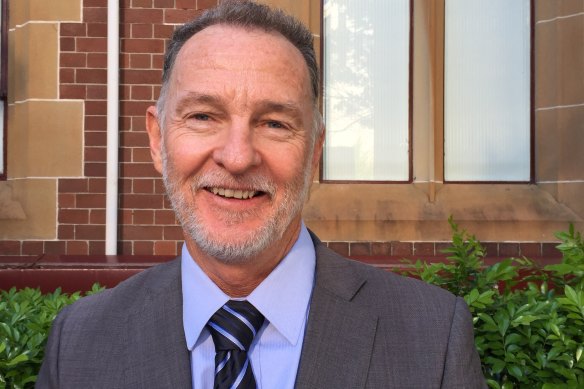
Public Health Association of Australia CEO Terry Slevin wants the airwaves ridded of gambling promotions.
“Whatever we put in place, this multi-billion dollar transnational business will find every possible opportunity to find a way around it,” Slevin said. “So we need to put proper, comprehensive controls in place now.
“That means governments being brave enough to stand up to their influence and power and the depth of their pocket and look after the constituents who will be voting for them – or not, as the case may be – at the next election.”
Sports leaders and wagering groups have argued for a model that would allow ads online if users proved they were adults and opted into viewing the promotions on platforms such as the AFL or NRL apps.
Government officials are consulting on a total digital ban because they doubt age limits could be enforced across the internet, even though Labor wants to keep children off social media.
On September 11, the prime minister told parliament he did not want an “intrusion into people’s personal liberties” if they chose to gamble.
“The connection, as well, between sport and gambling needs to be broken because sport should be enjoyed for what it is,” he said.
Liberal figures including former prime minister John Howard and former Victorian premier Jeff Kennett have called for a total advertising ban, while former Labor foreign minister Gareth Evans said gambling reform was an example of the government’s “cautious, defensive, wedge-avoiding mode”.
Australians spent $244.3 billion on all gambling in the year to June 2023, including $23.3 billion on wagering, the growth sector for sites and apps that take bets on sport.
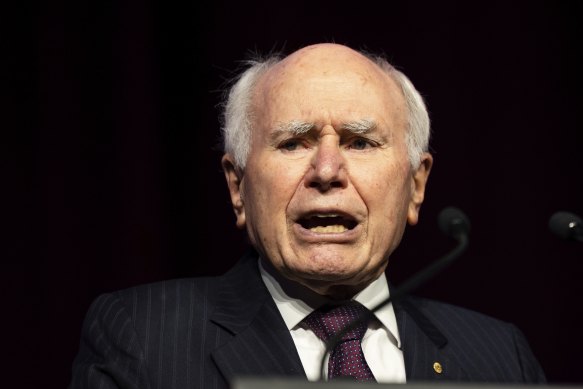
Former prime minister John Howard has called for a total ban on gambling advertising.Credit: Alex Ellinghausen
Spending on poker machines was far greater, at $191.2 billion, despite the stricter controls on the promotion of gaming machines at casinos, clubs and pubs.
A key factor in the government proposal is the expectation that curbs on advertising in one sphere, such as TV, will see an explosion in promotions on digital platforms, where gambling sites can use detailed knowledge of their customers to target the heaviest gamblers.
The money lost on all types of gambling was $32 billion, an increase of 14.2 per cent from the previous year, according to the figures collated by the Queensland Government Statistician’s Office on behalf of all states and territories.
Communications Minister Michelle Rowland said parents should be able to watch sport with their children without being bombarded by wagering ads.
“As we lead into finals season, we want Australians to be excited about the game, not the odds,” she said.
“The proposed model focuses on breaking the nexus that exists between wagering and sport, minimising the exposure of children to online wagering harm, and tackling the saturation and targeting of gambling ads.
“Business models have developed over many years without regulatory constraint – and this has resulted in a structural overreliance on wagering revenues.”
Rowland confirmed she was consulting stakeholders including the sporting codes.
The major sporting codes have gained lucrative revenue streams from gambling in three ways because the advertising is factored into billion-dollar deals for television broadcast rights, the wagering companies strike direct advertising deals with codes and clubs, and some codes take “product fees” from bets placed on their sport.
The AFL gained at least $6 million a year over five years from its direct sponsorship agreement with Sportsbet, the Australian Financial Review reported earlier this year. Gambling advertising on football grounds was worth another $3 million, the report said.
The AFL lifted revenue by 12.6 per cent to $1.1 billion last year, according to its annual report. Nine News reported last month that the AFL would lose $120 million a year if the government banned all gambling advertising. The AFL declines to comment on the record about the gambling debate.
